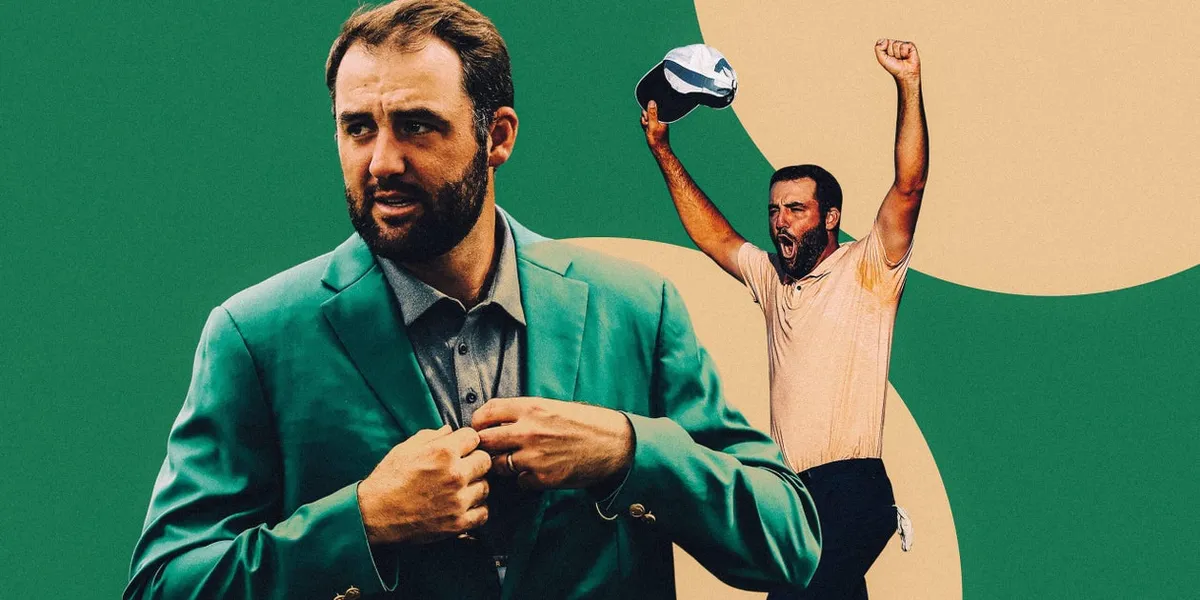
To truly understand how Scottie Scheffler navigates the challenging landscape of Augusta National, one must envision a skilled handyman addressing a leaky pipe. “It’s kind of like he’s got a toolbox, right?” remarks Randy Smith, Scheffler’s swing coach since he was just 7 years old. “When you go to fix plumbing, you check your toolbox and identify the right tool for the job. That’s how Scottie approaches his game.”
As a two-time winner of the Masters Tournament, Scheffler faces each challenge with a systematic approach. First, he assesses the situation. Then, he selects the right instrument from his collection—tools that every golfer possesses, but he uses them with exceptional skill. For instance, he might have a 7-iron, yet it’s his precise 5-yard fade that seems to defy even the fiercest winds. He wields a 60-degree wedge, but it’s his ability to execute a one-hop-and-stop chip that can outsmart the notoriously tricky Augusta greens.
As his caddie, Ted Scott, puts it, “I’d equate Scottie Scheffler to an incredible handyman. He shows up prepared, even if he doesn’t initially know what the job entails.” At just 28 years old, Scheffler has already achieved remarkable success at Augusta National, a course designed by the legendary Alister MacKenzie since 1934. Winning the tournament once is a career-defining achievement; doing it twice means unlocking a secret code that few can decipher.
Augusta National is a relentless test, exposing even the slightest flaws in a golfer’s game with its winding fairways and deceptive putting surfaces. For the player ranked as the best in the world for an impressive 99 consecutive weeks, this challenge is welcomed. Scheffler aims to make history this week by becoming the first golfer to win back-to-back titles at Augusta National since the iconic Tiger Woods did so 23 years ago.
In his five appearances at the Masters, Scheffler has never finished outside the top 20. “Ultimately, it’s about executing the shots,” Scheffler says. “I could analyze every hole and the specific shots required, but if you can’t pull them off, you’ll face the consequences.” While many falter, Scheffler has slid two green jackets over his shoulders in just three years, showcasing his ability to perform under pressure.
One key factor contributing to Scheffler’s success at Augusta is his exceptional iron game. According to Data Golf’s strokes gained approach rankings, he is the best iron player globally, leading in categories such as greens in regulation and strokes gained tee to green during the last three Masters tournaments.
However, it’s not solely about how Scheffler strikes the ball; it’s also about where his approach shots land and the strategy behind them. Smith observes, “It’s as if he’s reading the greens from the fairway.” Since his junior golf days, Scheffler has excelled at anticipating the demands of each hole, employing shot shaping that many modern players often overlook.
While most players are taught to focus on their strengths, Scheffler’s approach is dictated entirely by the needs of the course. “At Augusta, the greens are unlike any other,” Scott notes. “It’s a fascinating puzzle to solve.” He expertly adjusts his shots, hitting baby draws to positions on right-to-left slopes to let the ball trickle toward the cup, or using low cuts to navigate steep undulations.
During last year’s Masters, Scheffler approached the No. 8 tee while tied with three other competitors at the top of the leaderboard. He proceeded to score five under in his final 11 holes, while others faltered around him. Scheffler’s strategy involved attacking pins when possible and playing it safe when necessary. For instance, he executed a perfect iron shot on No. 9, setting up a tap-in birdie, while his competitors faced costly mistakes.
As Scheffler continued to hit his targets with remarkable precision, the challenge of Augusta began to feel effortless. With Amen Corner behind him, he shifted to autopilot, birdying holes 14 and 17, ultimately securing his second Masters victory by four strokes.
Ted Scott, an experienced caddie, plays a crucial role in Scheffler’s success. With two Masters wins alongside Scheffler and two with Bubba Watson, Scott ranks among the top caddies in Masters history. However, he humbly maintains that the players are the true artists. “I just carry the brushes,” he says, emphasizing the importance of his role in providing support rather than overshadowing the golfer’s talent.
Scott’s familiarity with Augusta National extends beyond just the course; he collaborates closely with fellow caddie Steve Kling to glean insights and strategies. Their meticulous preparation includes reviewing daily hole locations and pinpointing crucial details that could save a stroke—potentially the difference between victory and defeat.
Scott’s ability to connect with Scheffler during moments of pressure is invaluable. “I can’t imagine Ted Scott ever facing a situation he hasn’t seen at Augusta,” says John Wood, a veteran caddie turned NBC analyst. Scott has a knack for knowing when to encourage Scheffler and when to let his talent shine. “When you work with someone as elite as Scottie, you simply need to allow him to play great,” Scott explains.
On that memorable Sunday at Augusta, as roars from the gallery surged around him, Scheffler remained focused and composed. The excitement fueled him, showcasing his unique ability to thrive under pressure. “You hear those roars, and they energize you,” Smith says. “It’s a fertilizer for Scottie.”
Unlike many players who may crumble under pressure, Scheffler embraces the intensity of the Masters. He remembers watching the tournament as a child, captivated by moments like Tiger Woods’ near-miss on No. 16. Years later, as a teenager, he witnessed Bubba Watson’s unforgettable playoff victory. These experiences fuel his passion and drive.
As Scheffler’s competitors falter during high-stakes moments, he rises to the occasion. “The bigger the moment, the better he is,” Smith asserts. “While others become nervous, Scottie thrives on it.” This remarkable blend of ultra-competitiveness and unwavering focus sets him apart. As Scott notes, “If I could understand how he does it, I’d harness that power myself. It’s truly a superpower.”